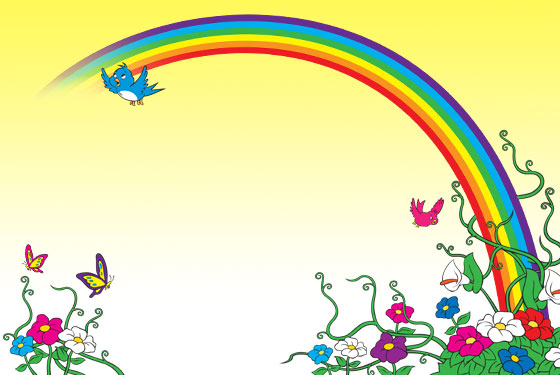
Wherever you stand on the political spectrum, the election we just witnessed was nothing if not sweeping in its effects. The Republicans retook the House, gained a net six seats in the Senate and at least seven governorships (pending disputed races). The GOP is buoyant, if publicly measured. Democrats are despondent, if a bit relieved that the damage wasn’t worse. Tea-partiers are emboldened by their newfound legitimacy. But in a larger sense, no one is really happy. People of all political persuasions are still angry about unemployment, taxes, the national debt, the smoldering wars in Iraq and Afghanistan, the threat of terrorism—the list is long. Read one way, last week’s election was as much a repudiation of our dysfunctional political system as a rejection of President Obama and the Democratic Congress. Two years ago, the American electorate threw out the previous group of incumbents; last week, they threw out the most recent bunch. In 2012, if the world doesn’t look substantially different, chances are we’ll send this bunch packing, too.
The first decade of the century has been especially difficult. We have endured the worst attack on American soil since Pearl Harbor, two subsequent wars, and a financial crisis second only to the Great Depression. Perhaps it’s no surprise, then, that 65 percent of Americans believe the country is heading in the wrong direction—and, paradoxically, don’t have high hopes that the power shift will redress that. The idea that America’s best days are behind it is no longer just a rhetorical device: It’s conventional wisdom.
But is it true? America is characterologically, almost definitionally, optimistic. The country, after all, was founded on the idea that anyone could come here and make a better life for himself. And for 234 years and counting, millions of people have done just that. My own family arrived in the U.S. in 1992, landing in Cleveland at what we didn’t yet know was the bottom of a recession. This July, my wife and I found out we’ll be having our first child—a daughter—in the spring. I want to believe that the future is bright enough for her. We all want to believe that tomorrow will be better than today. And, according to an assortment of economists, historians, and analysts of all stripes I consulted in order to convince myself that all was not bleak, it will. Here, then, is a selective, definitely myopic, but ultimately reassuring case for optimism.
Like it or not, we live in a divided country. But that’s not necessarily a bad thing. Having the presidency and the Senate in the hands of one party and the House controlled by the other is an expression of the American people’s will, at least at this moment in time. “It’s the norm in the modern era,” says former Bill Clinton adviser Paul Begala. “On some level, the voters must want it. We have these checks and balances in our cultural and political DNA. I wonder if, on some deep level, we get nervous when one party controls everything.” Besides, there’s no changing it, at least not until 2012. That’s democracy.
As an unalloyed liberal, I sought assurance against regression. Will the Republican rout spell the undoing of some of the Obama administration’s signature accomplishments? It certainly could. But repealing health care and financial reform is apt to be a lot harder than talking about repealing them; the Democrats still control the presidency and the Senate. And the Republicans undertake a wholesale rollback of such measures at their own risk. American voters may be angry and frustrated with Obama and the Democratic Congress, but do 30 million people really want to give back their promised health-care coverage? Do most Americans really want to deregulate Wall Street? Yes, it’s likely that certain measures will be watered down, but it’s by no means clear they’ll be obliterated.
Will the Republican victories usher in a still greater level of Washington gridlock? Absolutely. But even paralysis has its upsides. On the simplest level, if you’re a Democrat, it means the Republicans can’t, in fact, enact their agenda. And there are certain political advantages. If the economic policies that the Obama administration has put in place are working by 2012, the president will get all the credit. If they’re not, he gets to spread the blame. “From a crassly political standpoint,” says Robert Reich, a secretary of Labor under Bill Clinton who worked with a GOP-controlled Congress (and, obviously, a Democratic partisan), “Republican control of the House gives the president a foil against which he can more easily define what he’s for and against.” Recall that in 1994, the GOP took over the House for the first time in 40 years; in 1996, Bill Clinton became the first Democratic second-termer in 28.

One obviously has to filter an assessment of prospects through one’s own values. But whatever your partisan loyalties, after two years of dizzying change it may not be so bad to slow down, take stock of what’s been done, and see how it’s working. It could be perfectly good for the republic to take a breather. The fact is, sharing power has proved in the past to be a useful, sometimes even highly effective means of governing, says Columbia University historian Eric Foner: “What actually solidifies change is when the opposition party accepts it.” Foner sees an analogy in 1946, when the Republicans won control of Congress for the first time since before the New Deal—building a victory, then as now, on economic issues. “They passed new legislation, most prominently the Taft-Hartley Act, which severely impeded organized labor. On the other hand, they did not try to dismantle the New Deal. They did not repeal Social Security. They didn’t repeal the Wagner Act. When Eisenhower came in, in 1952, he said pretty explicitly, if we try to turn back the clock, we’ll be pushed out of office pretty fast.” Bill Clinton, Foner notes, similarly consolidated the Reagan revolution.
Sharing the reins can also move both parties toward the middle, producing broadly embraced centrist results. When neither Republicans nor Democrats hold all of the power, they have to take the best ideas from each other. The welfare-reform bill passed during the Clinton administration is a good example. Where cutting the welfare rolls was once considered a Republican idea (and liberal anathema), now virtually everyone agrees it was good policy. Begala sees a similar opportunity today regarding tax policy. “I’d come to the Republicans with a payroll-tax holiday. You guys seem to like tax cuts—well, here’s a tax cut that actually creates jobs!” Others see possibilities in education. With the traditionally Democratic notion that teachers should be protected at all costs softening in the face of stories about incompetent teachers being coddled by unions, the notion of greater accountability has begun to hold sway. Whatever one’s views of those particular ideas, they illustrate realistic opportunities for bi-partisan cooperation.
Over the long term, notes Reich, it doesn’t matter whether one party or the other—or both—are in power at a given time. Progress has always won out over stasis in this country. “Every time we have faced a choice between progressive reform and reactionary politics, we opt for reform,” he says. “It doesn’t happen immediately, but it always happens.” At the beginning of the twentieth century, trusts controlled the economy and urban “machines” controlled much of our politics. “What happened?” says Reich. “Teddy Roosevelt and Woodrow Wilson busted the trusts, and we enacted fundamental democratic reforms. The 1929 crash similarly led to FDR and an era of fundamental progressive reform—minimum wage, Social Security, unemployment insurance, the right to bargain collectively, the 40-hour workweek.” The sixties brought the massive advances in civil rights, the aftermath of Watergate ushered in campaign reforms, and so on.
In fact, it’s when times are good that the country is often in the greatest jeopardy, Reich says. One of the events that set in motion the gears of 2008’s financial crisis, for instance, was the 1999 repeal of the Glass-Steagall Act, which led to the creation of a number of all-purpose megabanks. “At the time,” Reich says, “this was one of the stupidest things I ever heard. I couldn’t believe Larry Summers and Alan Greenspan pushed for it. We let our vigilance down, and conservative forces tend to take over a lot of our politics when nobody’s watching. But when the American public feels that decency and fundamental ideas are threatened, we rise up.”
End-of-days predictions aside, the financial crisis did not turn out to be an existentially catastrophic event. Instead, it was the trigger for a harsher than usual—brutal, in fact—recession that followed, perhaps inevitably, a larger than usual bubble. The fact that we averted the doomsday scenario is itself no small reason to be happy. “We definitely avoided a much deeper fall,” says economics writer David Leonhardt. “In the first month of this recession, industrial production, global trade, and stocks all fell around the world more sharply than they had in 1929. But we had an extremely aggressive response by the government—the stimulus, TARP, and the Federal Reserve’s actions. And the economy rebounded faster than a lot of people thought it would, much faster than it did during the Great Depression.” Unemployment is currently bad enough—9.6 percent. Without the measures undertaken after the crash, that figure, by some estimates, could have been 25 percent.
Today, the economy is by no means growing fast enough to constitute a healthy recovery, but it is growing, and the growth is accelerating, if only slightly (2010’s second-quarter GDP rose by 1.7 percent, third-quarter by 2 percent). Last week, the Labor Department reported that the economy added 151,000 jobs overall in October. It may be cold comfort for the 14.8 million Americans still seeking work, but a September survey of 31 top economists done by CNNMoney.com found that the vast majority put the odds of a double-dip recession no higher than one in four. “You can argue that all the normal restorative powers of the economy are once again taking hold,” says Leonhardt. “The most likely case is a recovery at a pretty decent pace over the next year.”

In the long run, the crash could effect positive structural changes, says NYU sociologist Dalton Conley. “I actually felt less optimistic during the boom times. I was worried about the long-term fundamentals that are now being straightened out.” In the mid-aughts, consumers spent so much that the country had reached the lowest savings rate since the Great Depression—this during a prosperous stretch. “That signaled to me that things were out of whack,” says Conley. “Now, by force if not by choice, we are rediscovering the old Ben Franklin ideals. Savings, thrift, and investment are a more solid basis than consumer spending.” Today the savings rate is 5.5 percent, a fact that suggests that much of our debt repayment (deleveraging, in economists’ terms) may be done. The current rate, Conley says, “is at the lower end of acceptable,” but that’s not a bad thing either. It indicates we’re not a nation of hoarders (that would threaten to unleash a long-term Japanese-style recession, in which nobody borrows anything at any rate), but neither are we reckless spenders, double-leveraging our houses to buy Hummers and flat-screen TVs. While other fundamentals—like income equality—remain far from solved, the optimistic view is that they are at least part of the national conversation again.
The post-crash national animus toward Wall Street notwithstanding, the 7.8 percent run-up in the S&P 500 since the beginning of 2010 (including a 3.8 percent increase in October, the biggest jump in that month since 2003) isn’t just good news for anyone who invested in the stock market during that time. Wall Street is often a leading indicator, and the market seems to like the future of the U.S. economy.
A major reason the Street has been so bullish is monetary policy. Federal Reserve chairman Ben Bernanke has repeatedly made it clear that he intends to do whatever it takes to help fuel the recovery. By injecting cash into the system and driving down short-term interest rates to record lows (just last week, the Fed announced a plan to buy $600 billion of Treasury bonds over the next seven months), the Fed has made it easier than it’s been at any time in recent history for institutions and individuals to borrow money and jump-start the economy. That process takes time, and the Fed’s measures alone may not be enough to spark a strong and sustained recovery. But there are indications that cheap money is already beginning to have an effect: There were more small-business start-ups in 2009 than in any of the preceding fourteen years, including the 1999–2000 technology boom. And the smart money seems to believe that’s just the start of salubrious Fed-induced phenomena. Hedge-fund king David Tepper made some $7.5 billion in 2009, returning 132 percent for his investors. He told CNBC in September that his recent success is based largely on the Fed’s monetary policy. He said Bernanke’s promises made his decision to increase his investment in equities “easy.”
In spite of the widespread talk of a Chinese or Indian century, the United States still enjoys certain competitive advantages over other countries. Our markets are freer and more open than others. Our population is highly, if imperfectly, educated (American adults ages 18 to 29 are on course to be the most educated in history). Our lead in areas like information technology remains considerable, and nascent industries like biotech and clean energy hold untold promise. And we remain a singularly diverse nation. “Compared with many European countries and basically any Asian country, the U.S. is still embracing what I view as its main longer-term strength,” says former Jimmy Carter speechwriter James Fallows, who wrote a story earlier this year called “How America Can Rise Again” for the Atlantic. “That is, its ability to attract talent from around the world.” Even with all the debate over border fences, and post-9/11 Islamophobia, Fallows says, “we lumber our way toward the right view about this. Year in and year out, we get the graduate students. Many of them stay. They think they have a better chance to realize their ambitions here.”
That our national standard of living has risen so steadily in the past, even through crises and economic problems greater than those we face today, is another reason to be optimistic about our future. “Yes, there is the housing crisis,” says Fallows, “but most people own bigger houses than their predecessors would have a generation ago. Overbuilding is a problem, but it’s a problem of abundance: the generation of people starting their families now—the fact that housing prices are depressed gives them a lifetime opportunity. It allows them to not be saddled with debt in a way they might have been five or six years ago.” That’s not only true for the rich. “In the long term, the lives of the poor are vastly improved,” says Conley. “When you follow the way we calculate the standard of living—real income adjusted for inflation—you find that we have no income growth since 1973. But I think that’s balderdash, because it doesn’t account for new goods coming into the basket of goods.” The proliferation of affordable consumer products, from cars to washers and dryers to cell phones, Conley notes, has made life better for millions of people.

The reasons to be sanguine about what lies ahead extend beyond politics and the economy. The financial cost of the two recent wars is in the trillions of dollars; the human cost is incalculable. But we are substantially out of Iraq, and, the Obama surge notwithstanding, the same may soon be true of Afghanistan. While the Israeli-Palestinian problem remains arguably intractable, the two-state solution, a radical notion a decade ago, is now at least an accepted jumping-off point for all reasonable interested parties. Climate change remains extraordinarily complex, but there’s evidence that progress is being made: Since 2005 in the United States, net energy generated by solar power has increased 83 percent, net energy generated by wind power has increased 399 percent, and carbon-dioxide emissions have decreased 6 percent. Despite a number of near misses and the fact that such a thing remains unnervingly possible at any time, there has not been a successful terrorist attack on American soil since 9/11 (and the number of terrorist attacks worldwide has fallen 24 percent since 2006). The 2008 economic crisis did not, as many people feared, cause a spike in the crime rate. In fact, violent crime decreased by 5.3 percent last year, according to the FBI. “The connection between recessions and rising crime is just one of those things that everybody knows but just isn’t true,” says professor David Kennedy of the John Jay College of Criminal Justice. “What drives crime is not the economy; it’s things like drug epidemics. Ordinary people who have been working and lose their jobs don’t start committing crimes. The connection between the economy and crime is long-term structural unemployment, and that’s not the case now.” From 2007 to 2010, the number of Americans who say Islam encourages violence dropped by 10 percent. Nearly twice as many blacks—39 percent—now say that the “situation of black people in this country” is better than it had been five years earlier, as compared with 2007, when that figure was 20 percent. Infant mortality is down from 2.92 percent in 1950 to .67 in 2007. Death rates for heart disease, aids, and certain cancers have dropped sharply. In 2007, U.S. life expectancy hit an all-time high of 77.9 years.
Why, then, are we so pessimistic? Daniel Kahneman, a Princeton professor and Nobel winner, attributes unhappiness to what he calls the “focusing illusion.” When people weigh the effects of any one component of their lives—their party’s electoral victory, say, or their net worth—they tend to exaggerate its impact. We also feel losses more acutely than gains, because the mind—as research by Harvard psychologist Daniel Gilbert demonstrates—almost immediately adjusts to any bit of improvement as the new status quo. The point is usefully illustrated with a routine by the comedian Louis C.K. that gained fame under the title “Everything Is Amazing Right Now and Nobody Is Happy.” The bit builds, in part, off the hoary stand-up tradition of complaining about airline food and service: “You’re flying! It’s amazing! Everybody on every plane should just constantly be going, Oh my God, wow … You’re sitting in a chair in the sky!”
The act jumped to my mind repeatedly as I talked to expert after expert. Robert Reich implored me to consider a more holistic view of American history: “The long-term picture is always progress, greater opportunity, and tolerance. Who in their right mind thought we’d have a black president and women on the Supreme Court and as secretaries of State? Who’d ever think the typical American would enjoy the level of prosperity we have? Most countries and cultures have very long histories that feature deep divisions—religious, ideological, class. We don’t have that in this country. Our longer and deepest tradition is pragmatism.”
Earlier this year, in an essay called “Buck Up, America,” Council on Foreign Relations senior fellow and foreign-policy expert Walter Russell Mead wrote that “we are not like Pakistan, Egypt, Russia, or dozens of other countries who are struggling with the consequences of decades and even centuries of failures to keep up with a changing world. America’s failures are the failures of a country on the cutting edge. Countries like China and India are doing some amazing things, but they are playing catch-up. They are trying to get where we are, while the United States is moving forward into unexplored terrain. They are building industrial societies; we are seeing what comes next. They have a clear idea of the target in mind: a country where people are as rich as Americans. Our quest is different—harder, but perhaps also more rewarding.”
“We have a relatively honest government,” the historian Kenneth T. Jackson told me, “although I know that’s not what the people believe right now. Our politicians may make backroom deals and so on, but we don’t have a system in place like they have in India and some other countries, where becoming a politician is the way to wealth. We have a relative meritocracy—it’s not perfect, but people still believe that if you work hard and use your intelligence, you can certainly buy a house and a car and attain middle-class life. We have a reasonably free society. It’s not perfect—no society is—but we found a balance between freedom and order. If one model is Singapore and the other model is Johannesburg or Tijuana, we have generally found the balance. There are a lot of reasons to be pleased and proud.”
Everybody’s got their own benchmark, their optimism set point. Take a big enough step back, see the big enough picture, and pieces fall into place: We’re going to be all right. In the late thirties, Jackson notes, “we had a Depression with 25 percent unemployment and World War II. Compared to that, 10 percent unemployment and a bunch of terrorists from mostly backward countries seem trivial.”
The refusal to subscribe to the “golden age” myth, if you think about it, is the fundamental difference between a progressive and a conservative. Conservative thought always posits a bygone halcyon era: Some manage to find it in Reagan’s eighties, some would rather return to the pre-boomer values of the fifties. A progressive, on the other hand, carries no such burden. The whole outlook is predicated on the idea that the best days are, in fact, ahead.
There may be no greater reason for optimism than the attitudes of young people. Sixty-five percent of college freshmen are in favor of gay marriage, compared with 39 percent of the general population, and that includes nearly 25 percent of the students who identified themselves as “far right.” Black students ages 15 to 18 are more upbeat about their future than their white peers by almost a factor of two. A Time for Kids survey of 1,000 U.S. children ages 9 to 13 found that 81.6 percent said life was “pretty good” or “great.” The next generation seems to embrace core American ideals—tolerance, pluralism, and, yes, optimism—more than any before it. Kenneth Jackson, for one, thinks those beliefs are justified. “If I could change places with somebody who’s 5 years old, I’d do it in a nanosecond,” he says. “I don’t think they’ll have no problems. But I think they’ll have a great life.”
